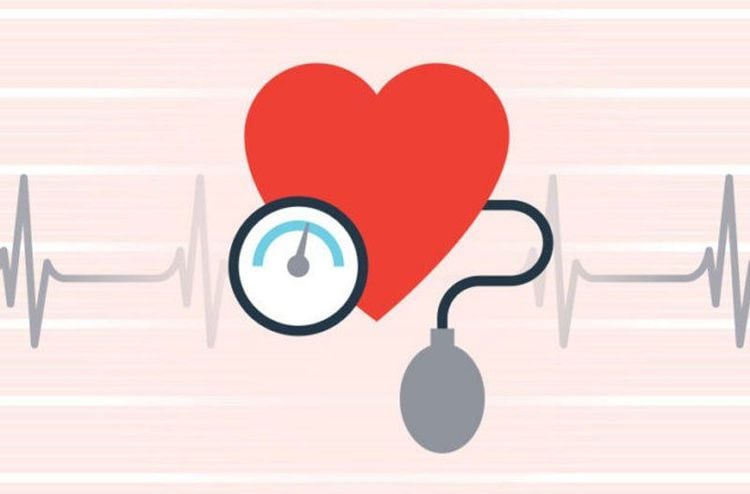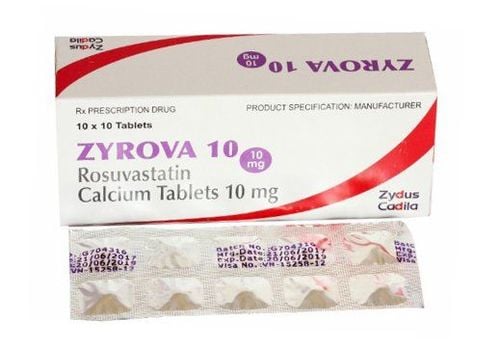This is an automatically translated article.
Garlic is a species of plant in the Onion family (Alliaceae), whose scientific name is Allium sativum. Garlic medicine has active ingredients extracted from garlic, used in heart-related diseases.1. What effect does garlic have?
Garlic is used for blood vessel disease (atherosclerosis) and high blood pressure (hypertension). Consult physician for more information if patient has heart, blood vessel disease or high blood pressure. Some herbal products or dietary supplements have been found to contain harmful impurities and additives. The FDA has not reviewed this product for safety or effectiveness. Patients can consult their doctor or pharmacist for more specific information.2. How to use Garlic
Garlic pills are taken by mouth as directed. Patients should follow all instructions on the product package. If you have any unanswered questions, ask your doctor or pharmacist for specific instructions.If the condition persists or gets worse, or if you think you may have a serious medical problem, seek medical help immediately.
3. Drug interactions
Drug interactions can change the way Garlic works or increase the risk of serious unwanted effects. The article does not cover all possible drug interactions when using Garlic. Therefore, patients should keep a list of all the products they are using (including prescription drugs, over-the-counter medicines and herbal products) and share it with their doctor or pharmacist for advice. question in a particular case. Patients should not start, stop, or change the dosage of any medication on their own without consulting a doctor. Some drugs that may interact with Garlic include: protease inhibitors (eg, Indinavir, saquinavir), non-nucleoside reverse transcriptase inhibitors (NNRTIs such as nevirapine, efavirenz), isoniazid, drugs or products herbal products that may increase the risk of bleeding (including anticoagulants such as warfarin and heparin, antiplatelet drugs such as clopidogrel, nonsteroidal anti-inflammatory drugs - NSAIDs such as ibuprofen, herbs such as Danshen, ginger, white fruit).
Thuốc Garlic được chỉ định điều trị bệnh mạch máu và tăng huyết áp
Aspirin may also increase the risk of bleeding when used with Garlic pills. If a doctor prescribes low-dose aspirin to prevent a heart attack or stroke (usually at doses of 81-325 milligrams per day), the patient should continue taking aspirin. Consult your doctor or pharmacist for more specific information.
Garlic may decrease the effectiveness of hormonal contraceptives such as the pill, patch or ring leading to an increased risk of unwanted pregnancy. Talk to your doctor or pharmacist about additional reliable birth control methods while using Garlic. Patients should also inform their doctor if any new spots appear or sudden bleeding, as these may be signs that birth control methods are not working well.
4. Note about side effects when taking Garlic medicine and precautions when using it
4.1. Undesirable effects Possible side effects include: Bad breath and body odor, stomach upset or heartburn. If any of these effects persist or become more severe, contact your doctor or pharmacist immediately for specific instructions.Tell your doctor right away if any of the following rare but very serious side effects occur: Easy bruising or unusual bleeding.
Very serious allergic reactions to Garlic are very rare. However, patients or family members should seek immediate medical attention if they notice any of the following symptoms of a serious allergic reaction: Rash, difficulty breathing, itching, or swelling (especially of the area) face, tongue, throat), severe dizziness.
The above is not a complete list of all undesirable effects that may occur when using Garlic medicine. If you notice signs of other effects not listed above, contact your doctor or pharmacist for further instructions.

Thuốc Garlic có thể gây mùi hơi thở và mùi cơ thể
If the patient has any of the following health problems, consult a doctor or pharmacist before using Garlic medicine: Bleeding or clotting problems, stomach problems , abdomen (eg: Intestinal infections, inflammatory bowel disease).
Garlic may increase the risk of bleeding problems. Before surgery, tell your doctor or dentist that you are taking Garlic.
Limit alcohol as it can worsen the risk of stomach upset and bleeding problems.
The liquid form of this product may contain sugar or alcohol. Caution should be exercised if the patient has diabetes, alcoholism or liver disease. Ask your doctor or pharmacist how to use Garlic safely.
Garlic pills are not recommended for use during pregnancy. Pregnant women should consult their doctor before using this product.
Garlic may be excreted in breast milk. Patients should consult their doctor before breast-feeding.
Please dial HOTLINE for more information or register for an appointment HERE. Download MyVinmec app to make appointments faster and to manage your bookings easily.
Reference source: Webmd.com












